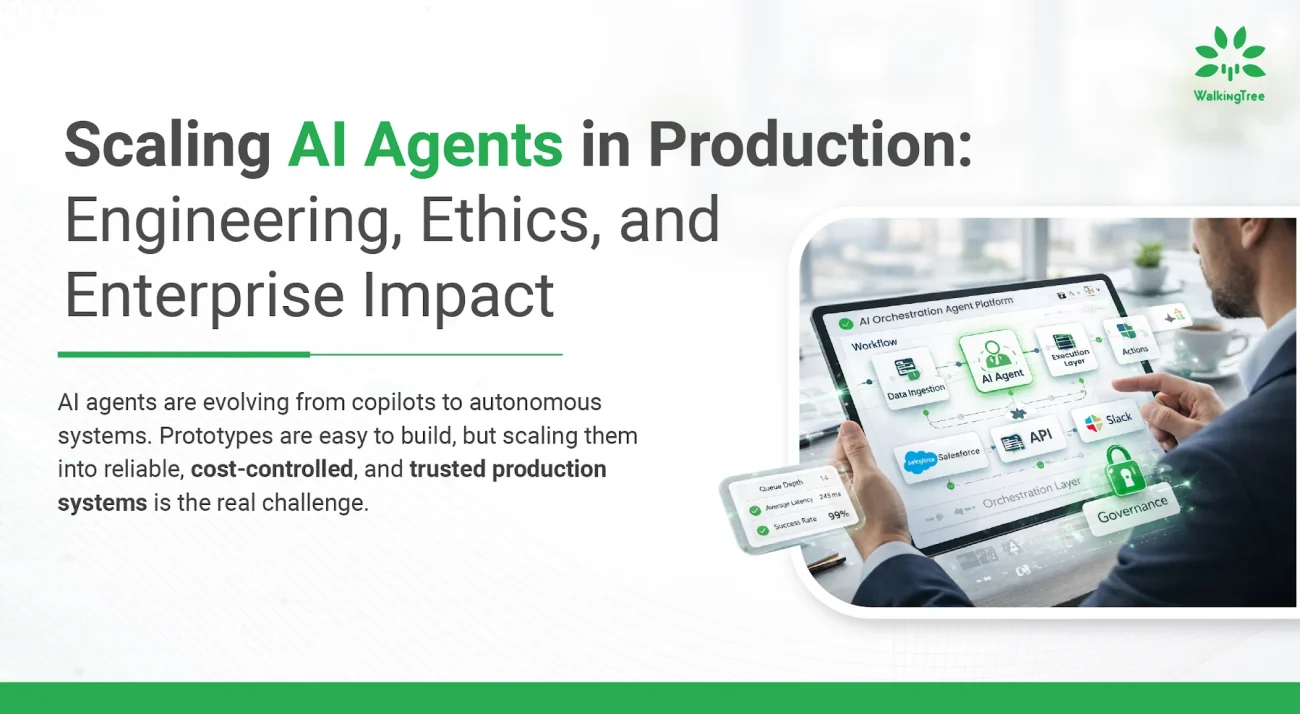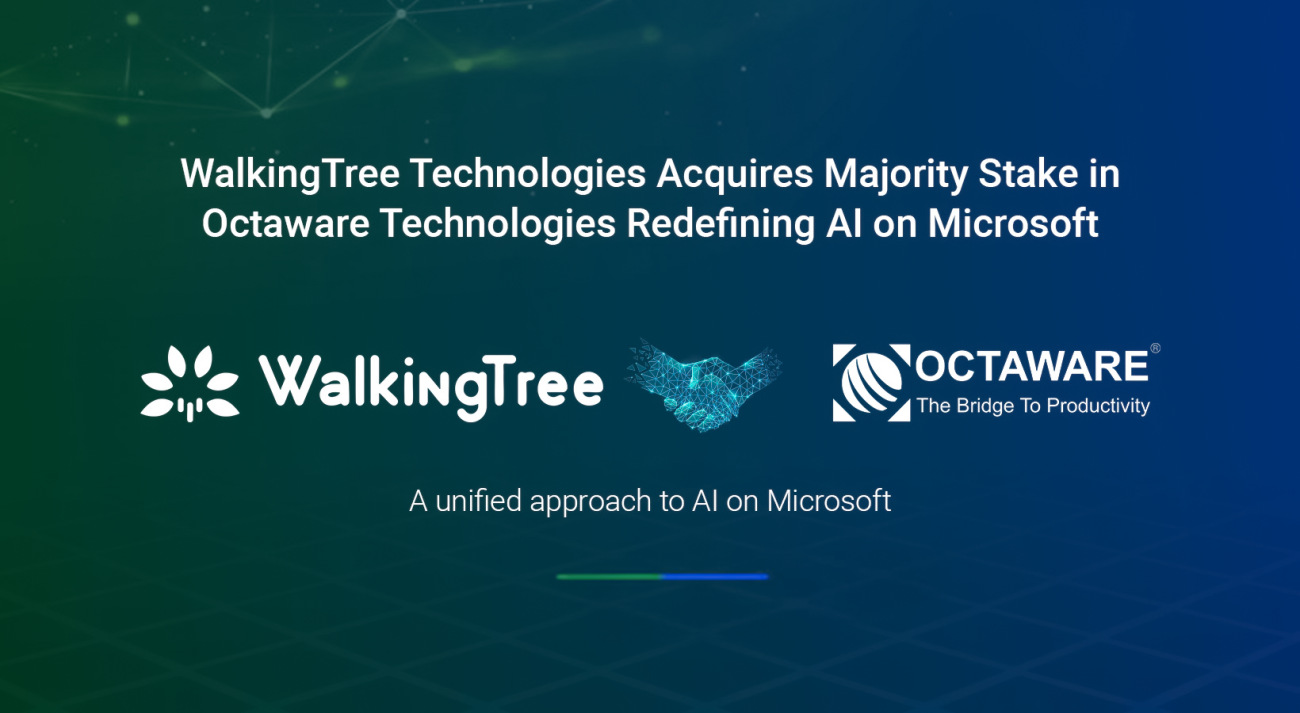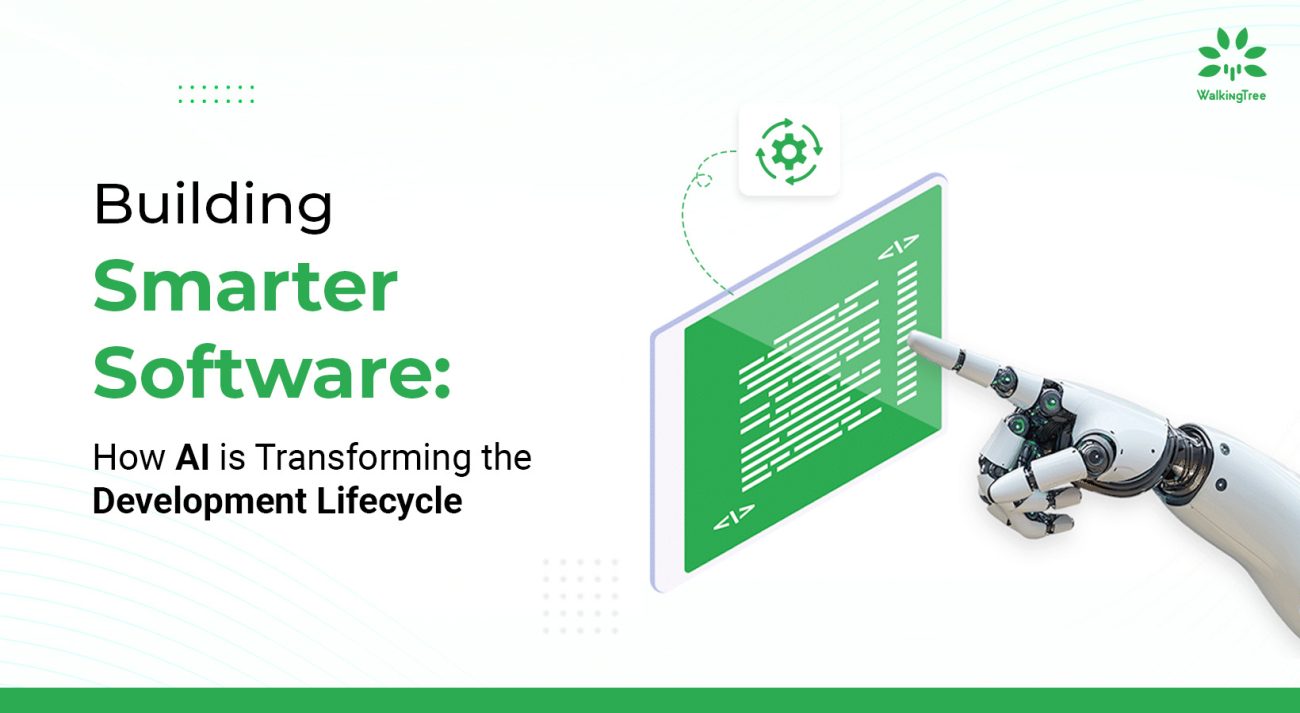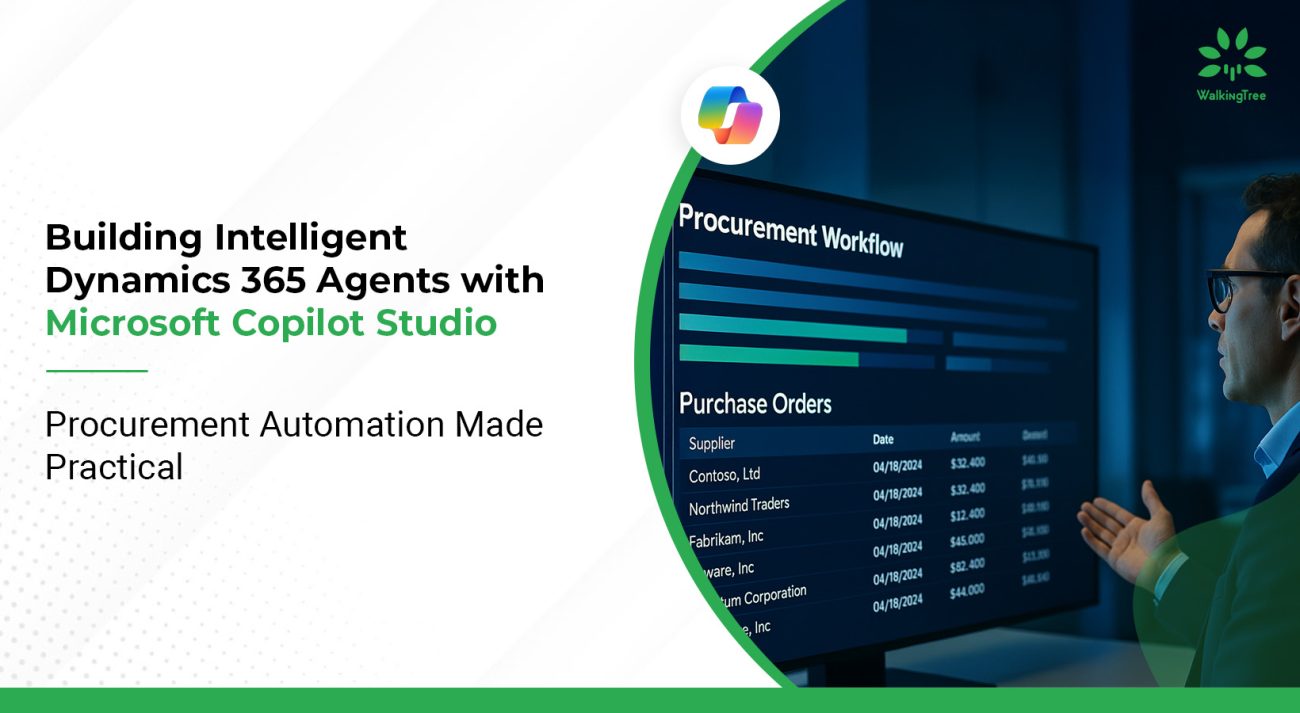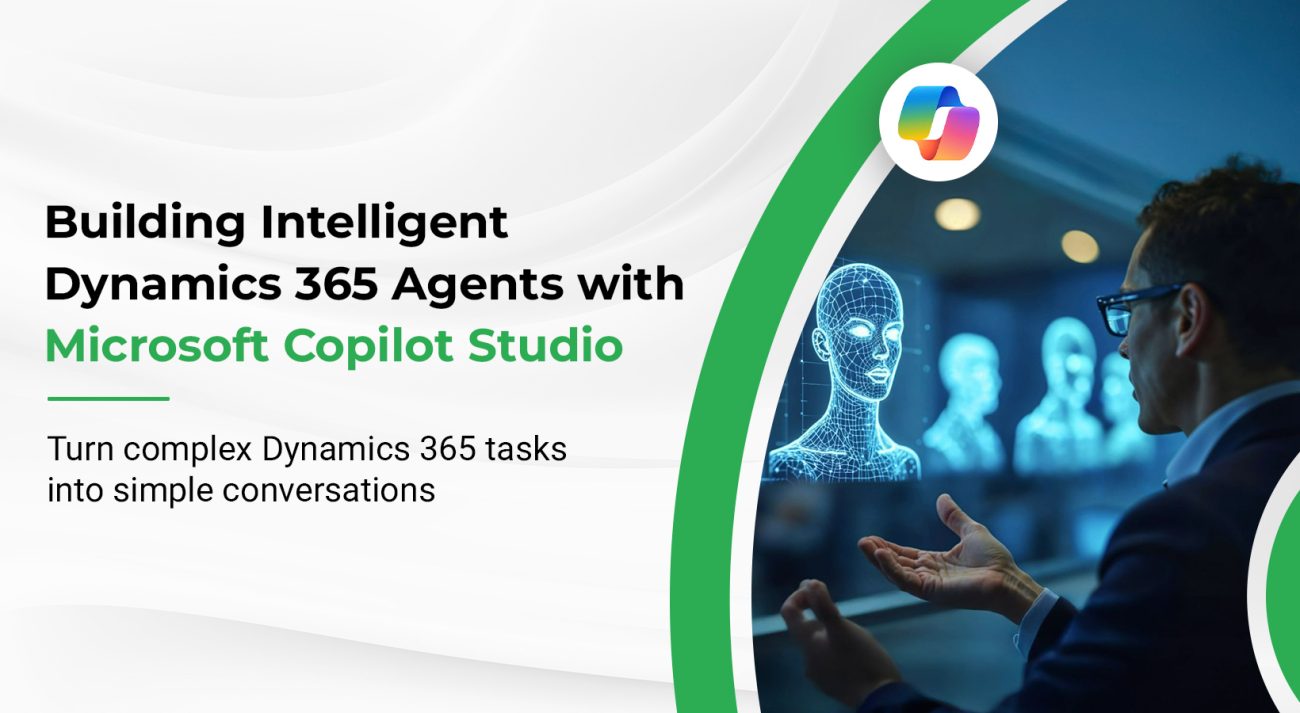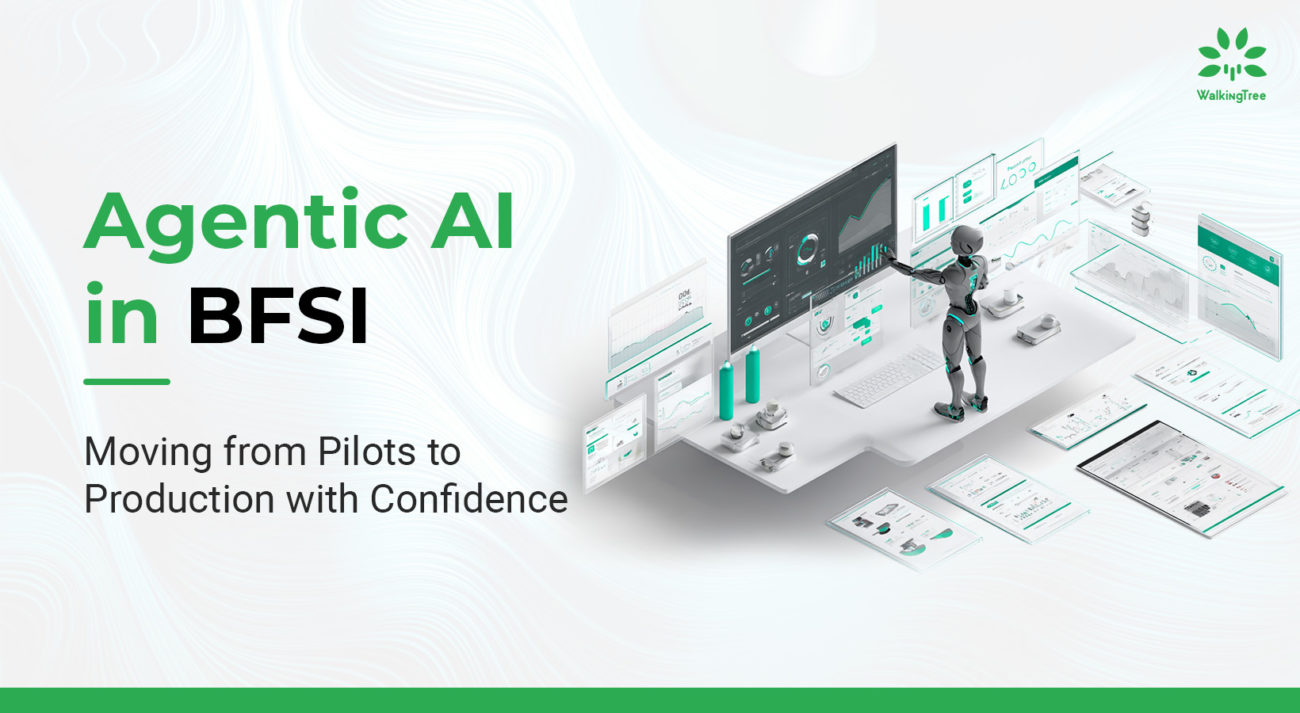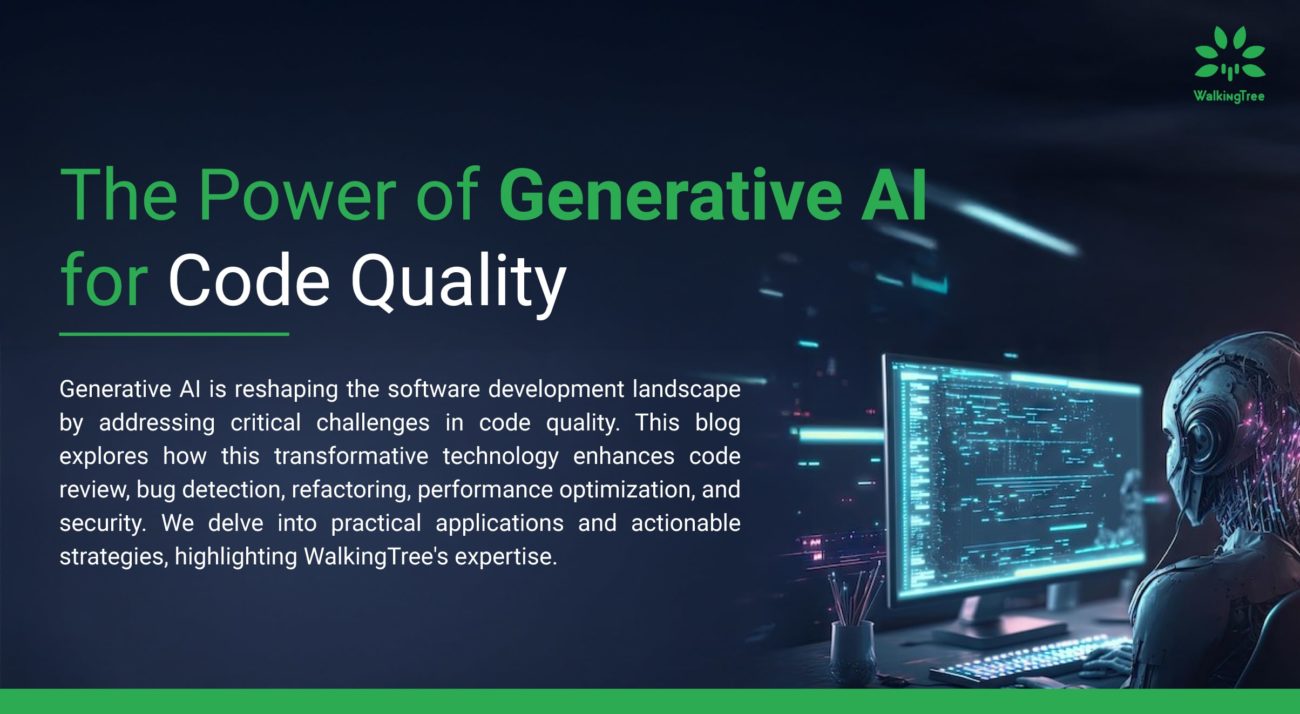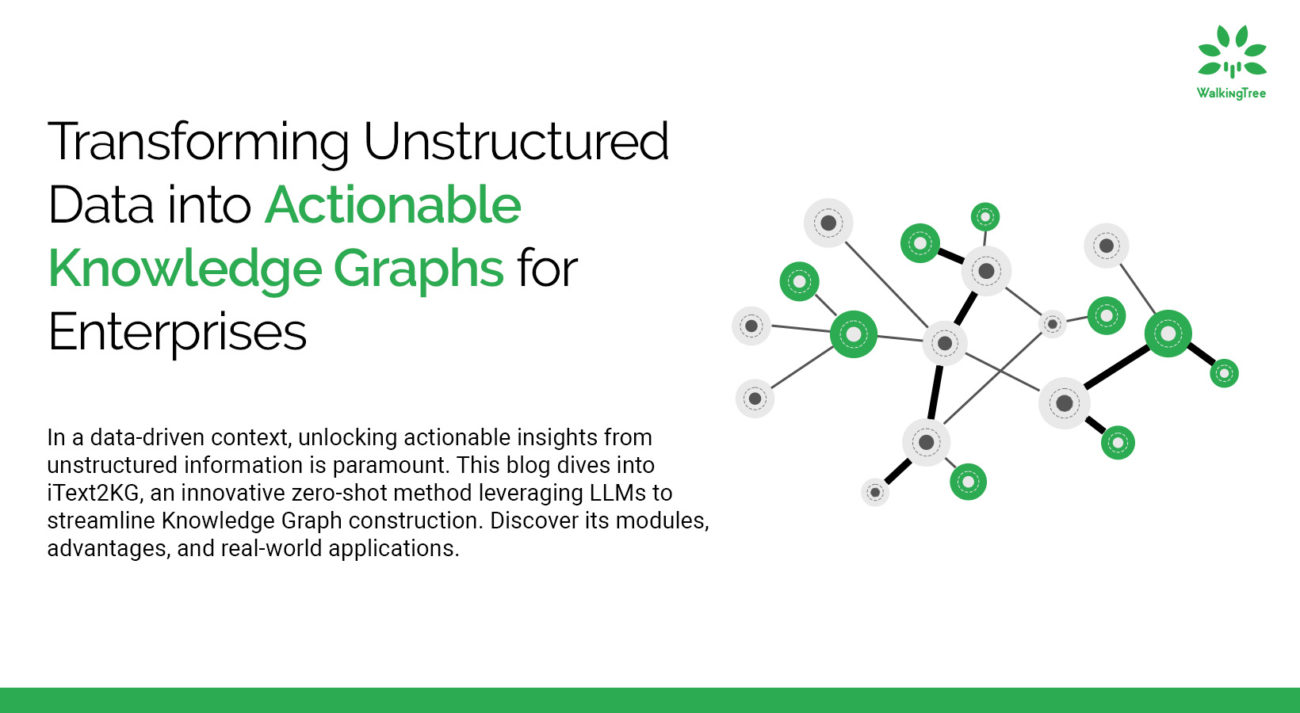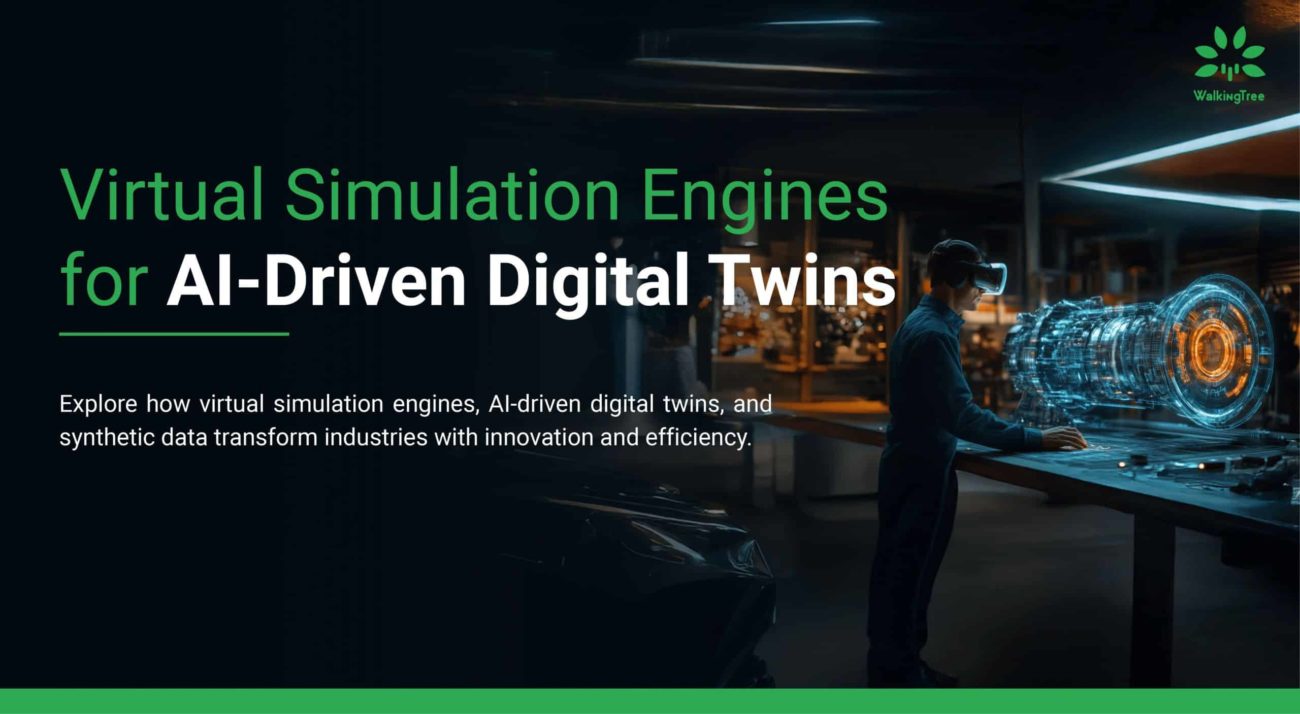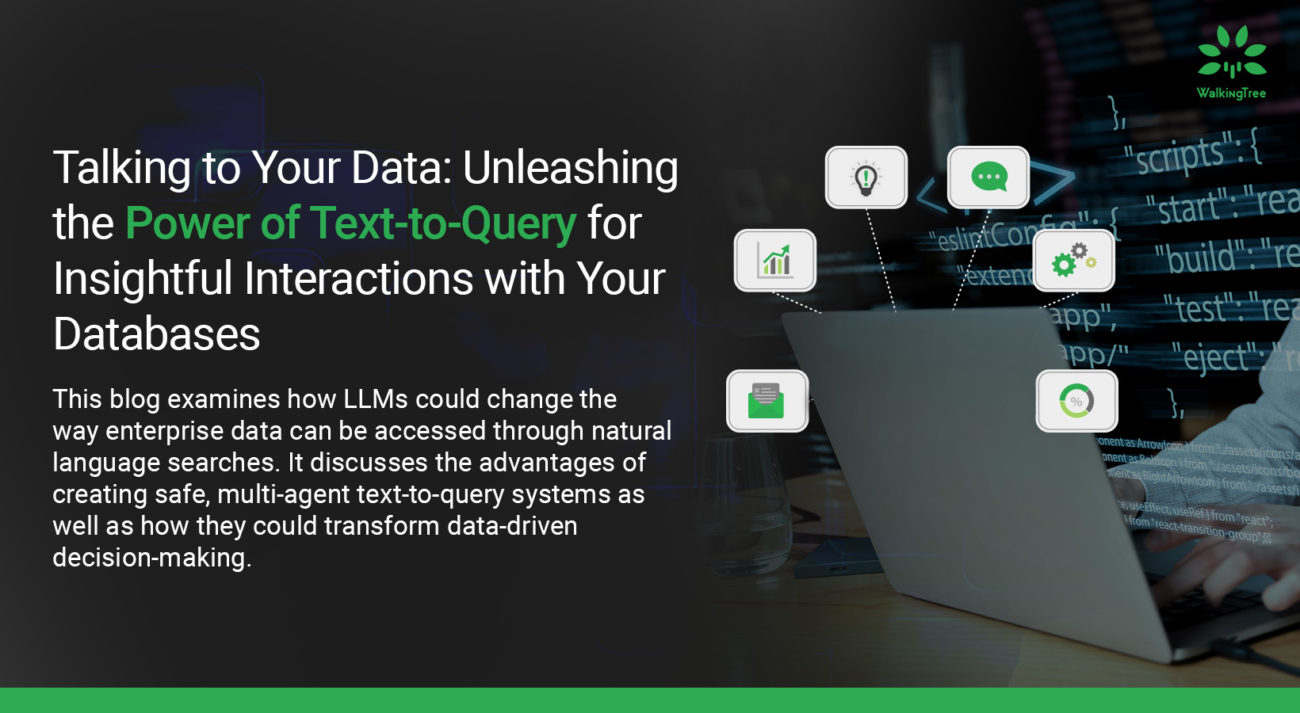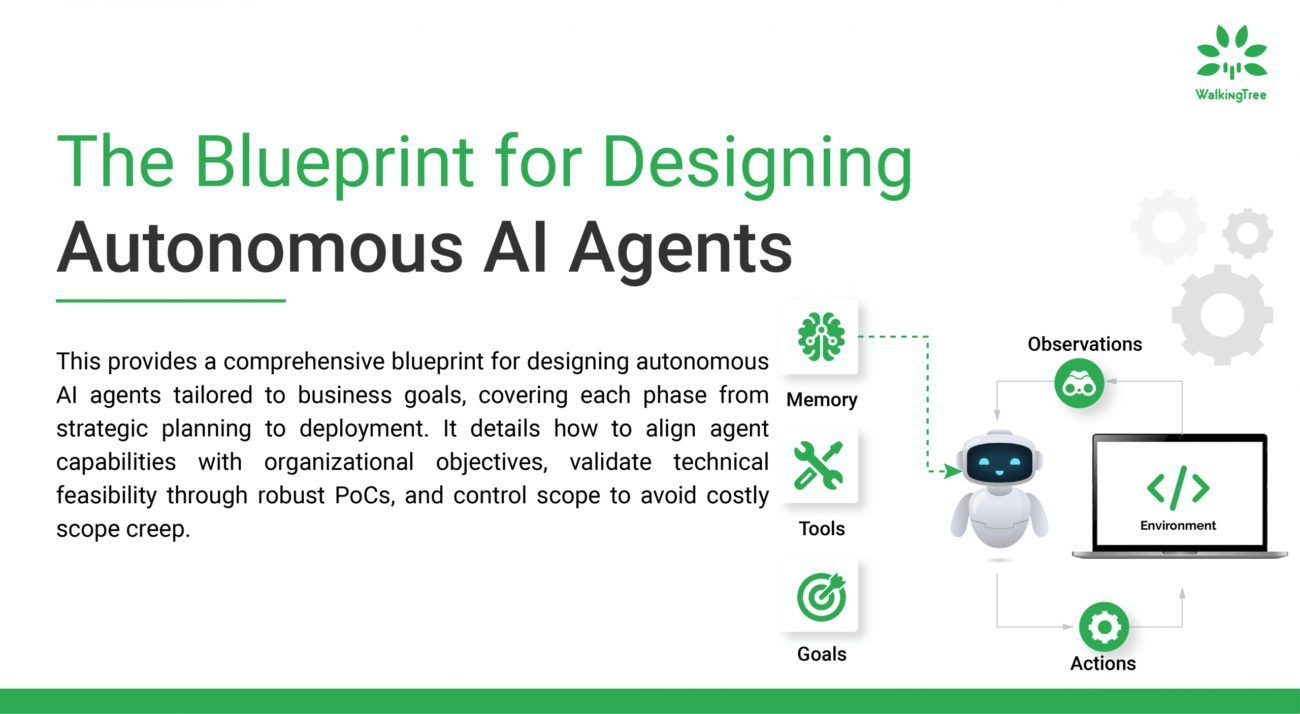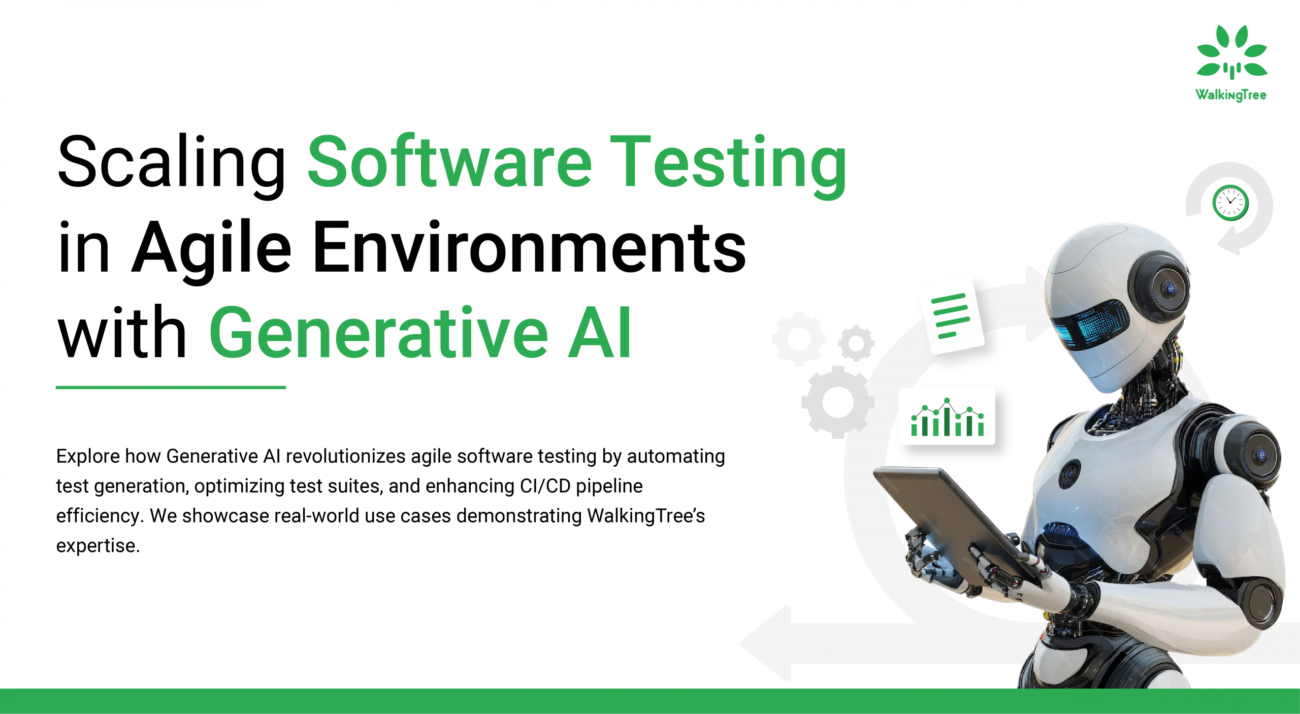
Blogs
How AI Agents Empower Industries with Efficiency and Insight

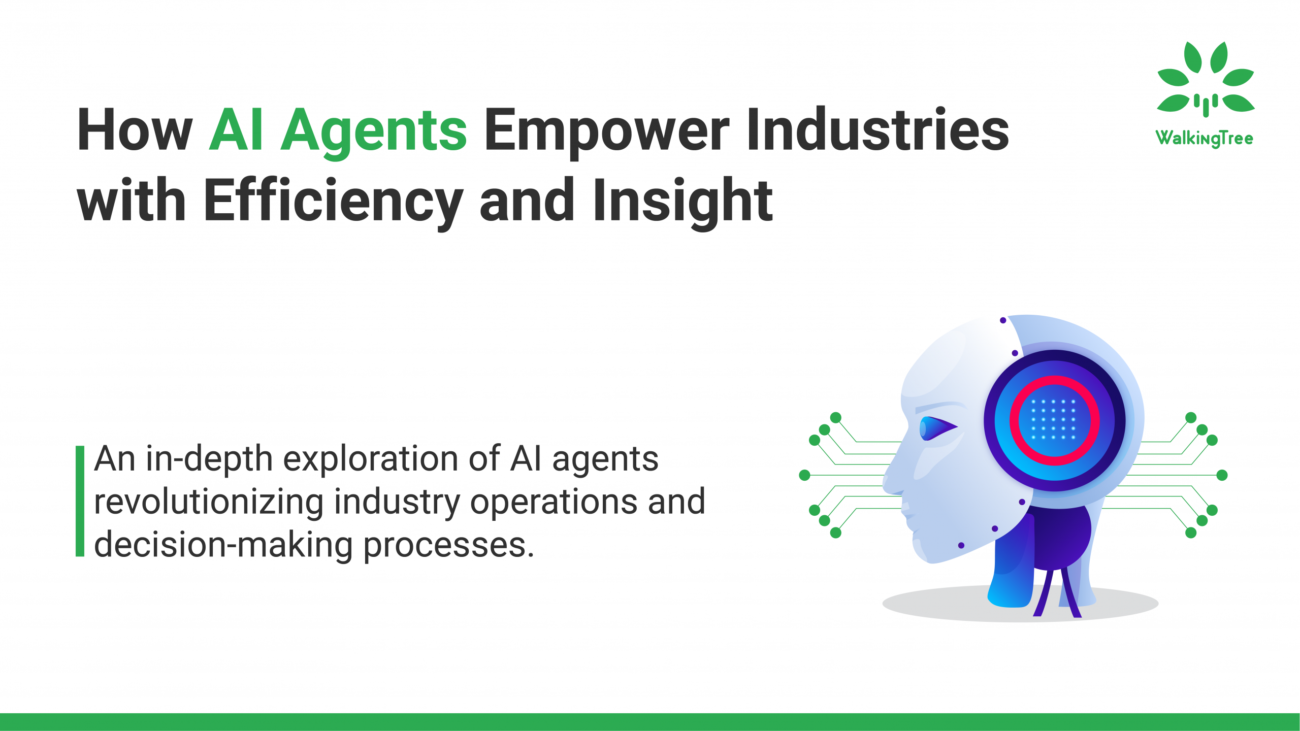
The exponential growth of data, coupled with increasingly intricate workflows and ever-growing customer demands, presents a significant challenge for modern industries. Industries across different sectors struggle to maintain efficiency and extract actionable insights from this data overload. Studies reveal that 60% of employees spend a significant portion of their workday on repetitive tasks, hindering productivity and innovation. Furthermore, businesses lose billions annually due to inefficient data analysis and failure to identify hidden patterns within their data. AI agents emerge as a powerful solution. These intelligent software programs, equipped with machine learning algorithms and the ability to make data-driven decisions, are poised to empower such industries.
|Understanding AI Agents
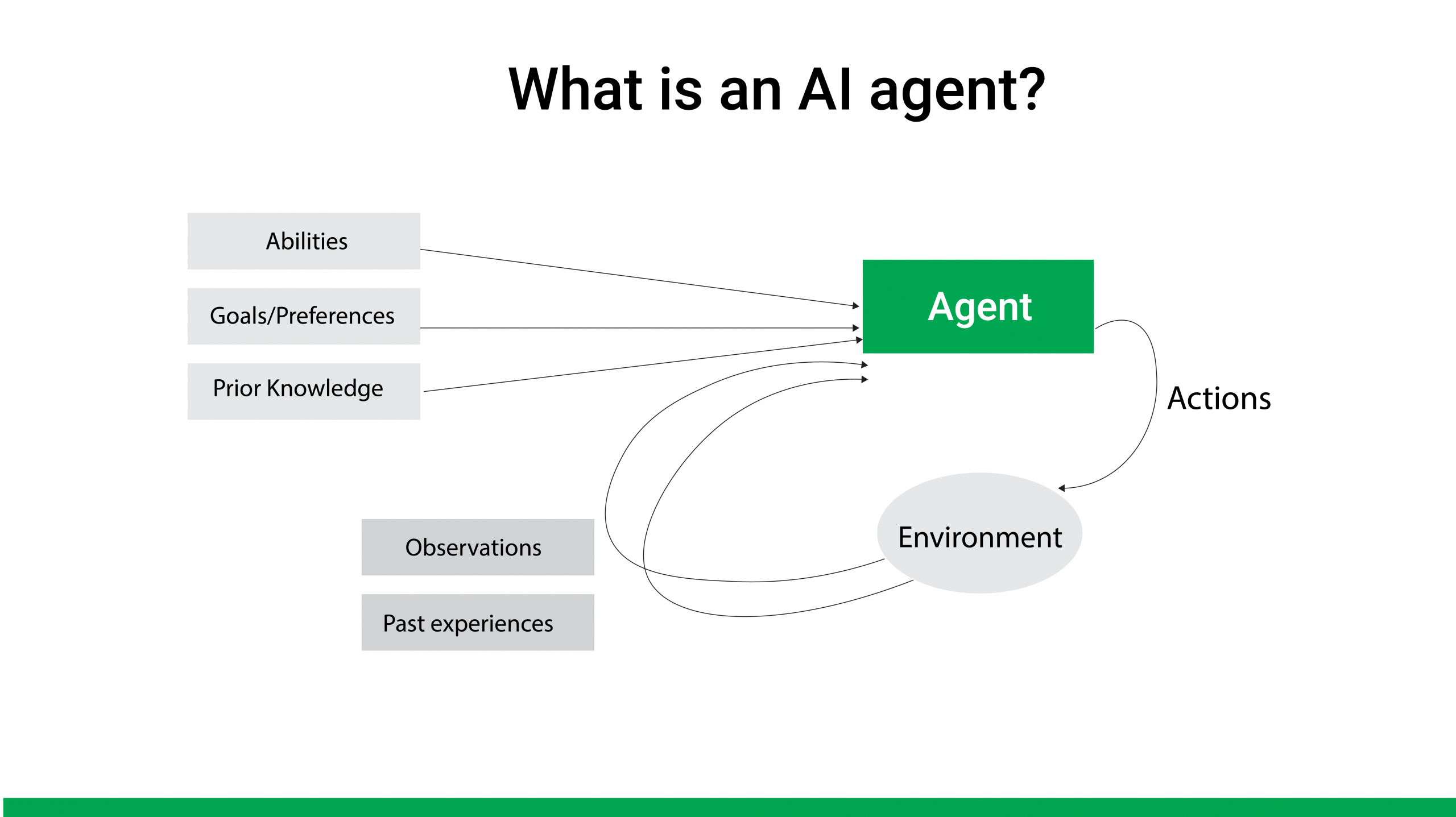
AI agents are rational entities designed to interact with their environment through sensors and effectors, processing inputs to make informed decisions. They can be categorized into various types based on complexity:
-
Simple Reflex Agents
Simple reflex agents respond directly to specific stimuli using predefined rules. They are useful for straightforward tasks that require immediate action. For example, they can automate scheduling or handle basic decision-making tasks where the environment is well-defined and the outcomes are clear.
-
Model-Based Agents
Model-based agents maintain an internal state that tracks their environment, enabling them to handle more complex scenarios. These agents can predict future states and make informed decisions, making them suitable for dynamic and changing environments such as robotics, logistics, and strategic planning.
-
Goal-Based Agents
Goal-based agents are designed to plan and execute actions to achieve specific objectives. Using goal-oriented algorithms, they excel in tasks that require strategic thinking and long-term planning. Examples include optimizing logistics, managing projects, and making strategic business decisions.
-
Utility-Based Agents
Utility-based agents evaluate different actions based on utility functions to maximize performance according to defined criteria. They balance multiple objectives and constraints, making them ideal for complex decision-making scenarios in finance, resource management, and strategic planning.
|From Basic Automation to Strategic Decision Makers
AI agents are undergoing a significant change, evolving from basic automation tools to strategic partners that augment human decision-making. Initially, rule-based agents provided immediate value by automating repetitive tasks like appointment scheduling or basic customer inquiries. This frees up human resources for more complex tasks and strategic planning.
However, the true potential lies in the transformation of AI agents beyond simple automation. Advanced algorithms and machine learning empower them to analyze vast datasets, identify intricate patterns, and make data-driven recommendations. These sophisticated agents transition from executing predefined rules to becoming strategic partners. Let’s delve deeper into their technical functionalities and transformative potential.
-
Achieve Effortless Operational Excellence
AI agents are designed to perform autonomous task execution through a combination of sensor data integration and effectors. By leveraging embedded systems and IoT devices, these agents continuously gather environmental data, which they process using complex algorithms to make real-time decisions.
-
Machine Learning and Deep Learning Integration
At the core of AI agents lies the integration of advanced machine learning (ML) and deep learning (DL) techniques. These agents employ various ML models, including supervised learning, unsupervised learning, and reinforcement learning, to improve their decision-making capabilities. Deep learning models, particularly convolutional neural networks (CNNs) and recurrent neural networks (RNNs), enable these agents to process and analyze large volumes of unstructured data, such as images, text, and sequential data.
-
Decision-Making with Predictive Analysis
They utilize data from diverse sources, including real-time sensors, historical databases, and external APIs. Advanced analytics and predictive modeling techniques allow these agents to forecast future trends, identify patterns, and optimize processes. Techniques like Bayesian inference, Monte Carlo simulations, and stochastic modeling are often employed to enhance the precision and reliability of their predictions.
- Natural Language Processing and Understanding
Natural language processing (NLP) and natural language understanding (NLU) are integral components that enable AI agents to interpret, process, and generate human language. Leveraging NLP techniques such as tokenization, parsing, sentiment analysis, and entity recognition, these agents can effectively manage customer interactions, extract meaningful insights from text data, and automate communication processes.
-
Adaptive and Evolving Intelligence
Through reinforcement learning algorithms, these agents refine their strategies and improve performance over time. By receiving feedback from their environment and user interactions, they update their learning models and adapt to new scenarios, ensuring sustained efficiency and accuracy. Techniques such as Q-learning (a model-free reinforcement learning algorithm), deep Q-networks (DQNs, which combine Q-learning with deep neural networks), and policy gradient methods (which optimize the policy directly) are commonly used for this purpose.
-
Actionable Insights and Predictive Analytics
By interfacing with BI platforms, these AI agents provide real-time analytics, generate automated reports, and offer actionable insights. For example, in retail, AI can predict inventory needs, while in finance, it can forecast market trends. This integration supports data-driven decision-making processes, enabling organizations to respond swiftly to market dynamics and operational challenges.
-
Intelligent and Autonomous Agents
Cloud-based architectures and microservices enable these agents to scale their operations across multiple environments and handle varying workloads. Utilizing containerization technologies such as Docker and Kubernetes, AI agents can be deployed and managed efficiently, ensuring robust performance and reliability in diverse operational contexts.
|AI Agents in Workflow Execution
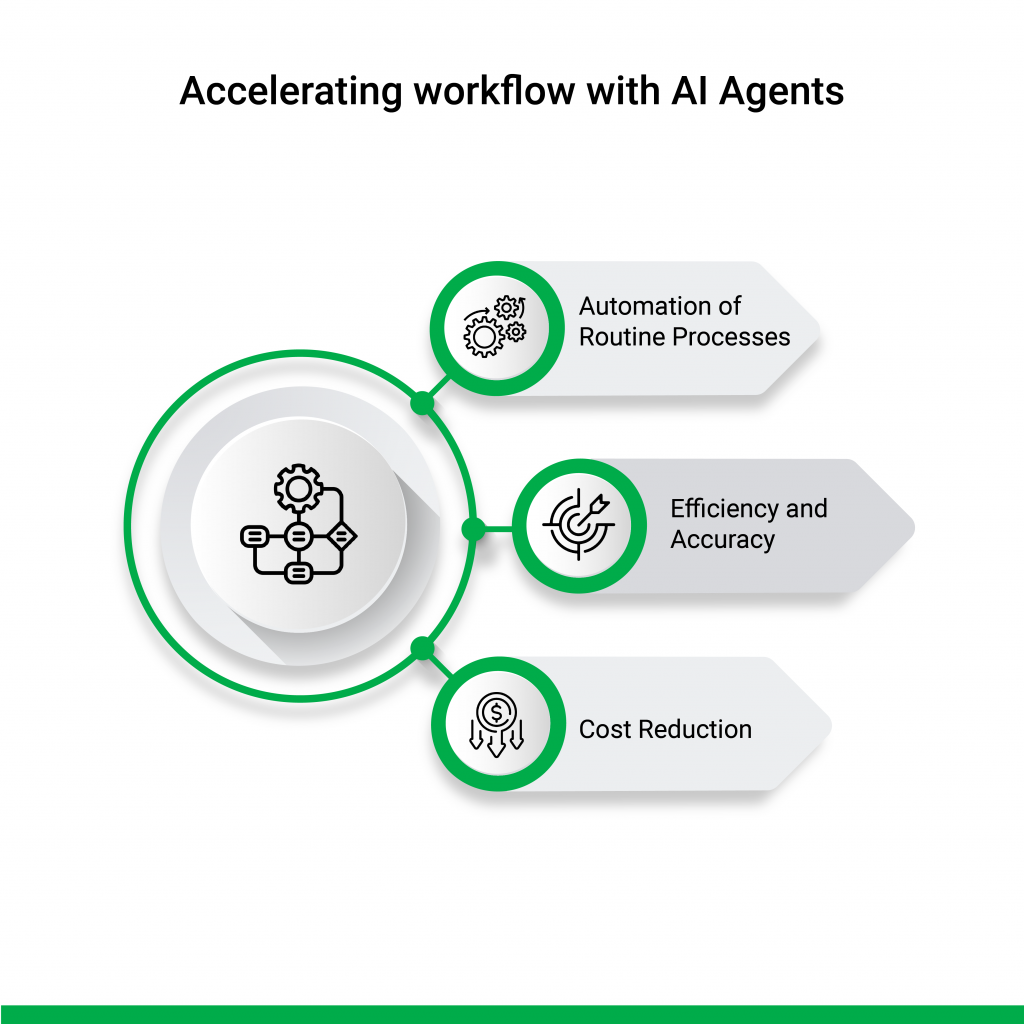
AI agents streamline operations by automating routine tasks, freeing human workers to focus on strategic initiatives. Below are specific ways AI agents enhance workflow execution:
|Automation of Routine Processes
AI agents excel in automating repetitive and time-consuming tasks across various industries:
- Data Entry and Management: Automate data extraction, validation, and input across systems.
- Scheduling and Resource Allocation: Optimize meetings, appointments, and task scheduling for efficient resource use.
- Customer Support and Service Desk Operations: Automate issue resolutions, information provisions, and escalation to human agents.
|Efficiency and Accuracy
AI agents significantly enhance operational efficiency and accuracy, leading to faster turnaround times, reduced operational costs, and improved customer satisfaction.
- Error Reduction: Minimizing human errors in data entry and processing.
- Speed: Accelerating workflows by performing tasks faster than human counterparts.
- Reliability: Ensuring consistent performance and outcomes.
|Cost Reduction
Implementing AI agents leads to substantial cost savings, potentially reducing operational costs by up to 30% and optimizing resource management to prevent wastage.
- Operational Costs: Reducing labor costs associated with routine tasks.
- Resource Management: Optimizing the use of resources, from raw materials in manufacturing to bandwidth in telecommunications.
|Data Analytics with AI Agents
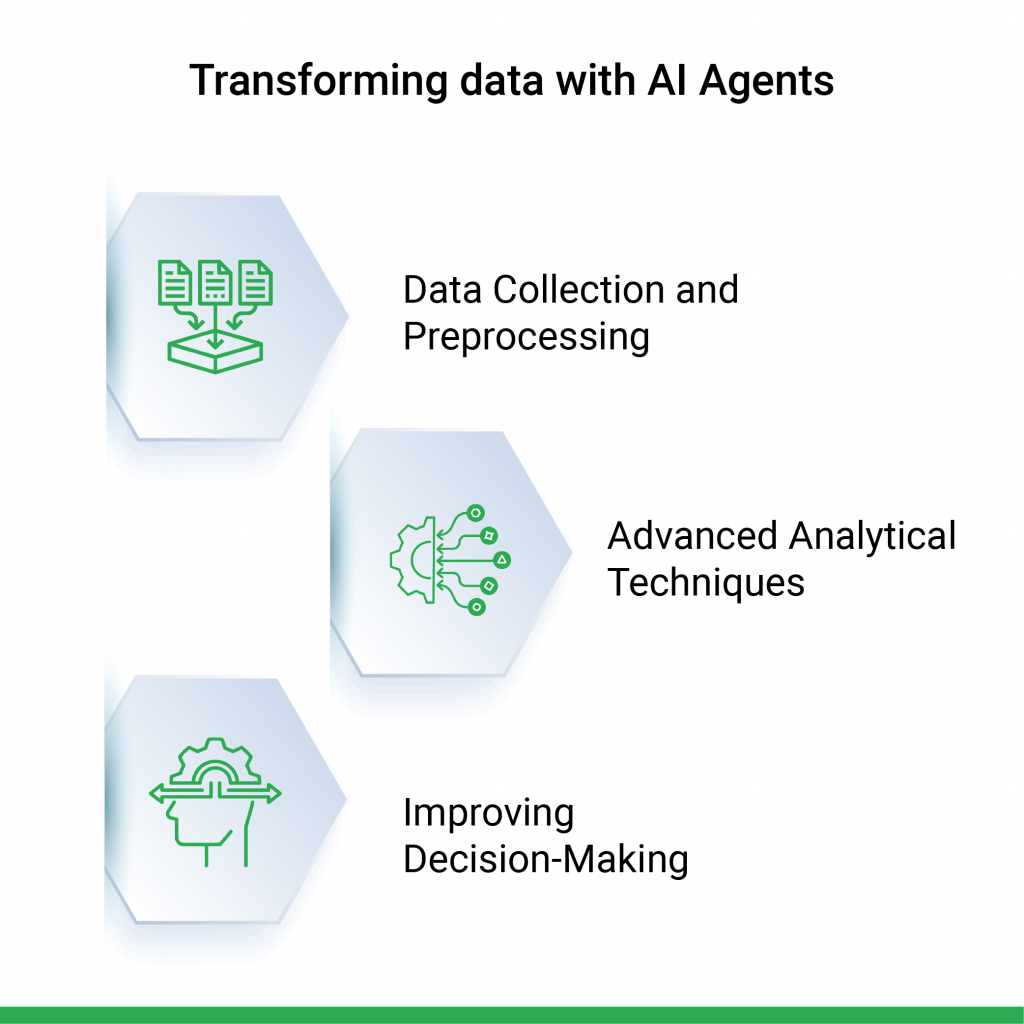
AI agents unlock data’s potential, turning raw information into strategic advantage through advanced analytics and machine learning. Below are specific ways AI agents enhance data analytics:
|Data Collection and Preprocessing
AI agents streamline data collection and preprocessing, ensuring high-quality data for analysis:
- Efficient Data Gathering: Utilizing sensors and IoT devices to collect real-time data from various sources.
- Data Cleaning: Automatically identifying and rectifying errors or inconsistencies in datasets.
|Advanced Analytical Techniques
AI agents employ advanced techniques to derive actionable insights:
- Machine Learning Models: Building predictive models to forecast trends and behaviors.
- Real-Time Analysis: Analyzing data in real-time to provide immediate insights and feedback.
|Improving Decision-Making
AI agents empower decision-makers with data-driven insights:
- Data-Driven Strategies: Formulating strategies based on comprehensive data analysis.
- Customization and Personalization: Tailoring services and products to meet specific customer needs.
|AI-Powered Solutions for Industrial Challenges
AI leverages machine learning algorithms to analyze vast datasets, identifying patterns and enabling data-driven decision-making. Deep learning refines this by recognizing complex information, while IoT facilitates real-time data collection. This convergence empowers AI to automate tasks, predict outcomes, and personalize experiences, transforming industries. Here’s a deeper dive into how AI agents enhance these industries through advanced technical implementations:
|Healthcare
Streamlining Administrative Processes: AI agents automate patient scheduling, electronic health records (EHR) management, and billing systems. By integrating natural language processing (NLP) and robotic process automation (RPA), these agents reduce administrative burdens and errors, allowing healthcare professionals to focus more on patient care.
Enhancing Diagnostic Accuracy: AI agents utilize machine learning algorithms to analyze medical images, genetic information, and patient history. Techniques such as convolutional neural networks (CNNs) for image recognition and deep learning for predictive analytics enable early and precise diagnosis of diseases, improving patient outcomes.
|Finance
Fraud Detection and Risk Management: Financial institutions deploy AI agents equipped with anomaly detection algorithms and real-time data analysis capabilities. These agents utilize machine learning models to detect suspicious activities, mitigate risks, and ensure compliance with regulatory requirements. Techniques such as unsupervised learning and clustering help identify fraudulent patterns and enhance transaction security.
Algorithmic Trading and Portfolio Management: AI agents use predictive analytics and reinforcement learning to optimize trading strategies and manage investment portfolios. By analyzing vast amounts of market data, these agents provide actionable insights and execute trades with minimal human intervention, maximizing returns and minimizing risks.
|Manufacturing
Predictive Maintenance: AI agents in manufacturing plants leverage IoT sensors and time-series data to predict equipment failures before they occur. Techniques such as recurrent neural networks (RNNs) and anomaly detection models analyze real-time sensor data to forecast maintenance needs, reducing downtime and extending equipment lifespan.
Supply Chain Optimization: AI agents enhance supply chain efficiency by using advanced analytics and optimization algorithms. They manage inventory levels, predict demand, and optimize logistics through techniques such as linear programming and genetic algorithms, ensuring seamless operations and cost savings.
|Logistics
Route Optimization: Logistics companies utilize AI agents to optimize delivery routes and schedules. By employing graph theory and dynamic programming, these agents calculate the most efficient routes, reducing fuel consumption and delivery times.
Warehouse Management: AI agents automate warehouse operations using computer vision and robotics. Techniques such as object detection and automated guided vehicles (AGVs) streamline inventory management, order picking, and packing processes, increasing operational efficiency and accuracy.
|Contact Centre
Customer Interactions and Operational Efficiency: AI revolutionizes contact centers by enhancing customer interactions through chatbots and virtual assistants, employing NLP and ML for real-time responses. It boosts efficiency with predictive call routing, workforce optimization, and automated quality assurance. AI-driven speech analytics and personalized customer experiences improve satisfaction, while advanced security measures and fraud detection ensure data protection.
Adaptation, Insights, and Overall Impact: Continuous learning algorithms adapt to evolving needs, providing data-driven insights for strategic decision-making. Overall, AI streamlines operations reduces costs, and elevates service quality, making it indispensable for modern contact centers.
WalkingTree Technologies offers a suite of AI services designed to enhance business operations:
Generative AI Services: Developing models that create new content, improve designs, and optimize processes.
Conversational AI: Implementing chatbots and virtual assistants to enhance customer engagement and support.
AI agents represent a transformative technology with the potential to revolutionize workflow execution and data analytics across all industries. Their ability to automate tasks, enhance data analysis, and improve decision-making processes makes them invaluable assets for modern businesses.
Industries are encouraged to explore the potential of AI solutions and collaborate with experts like WalkingTree Technologies to implement and scale AI-driven strategies. Embracing AI can significantly improve efficiency, cost savings, and overall business performance.
Visit WalkingTree Technologies. Discover how we can help you achieve unparalleled efficiency and insight in your operations. Explore our services and take the first step towards revolutionizing your industry today.


